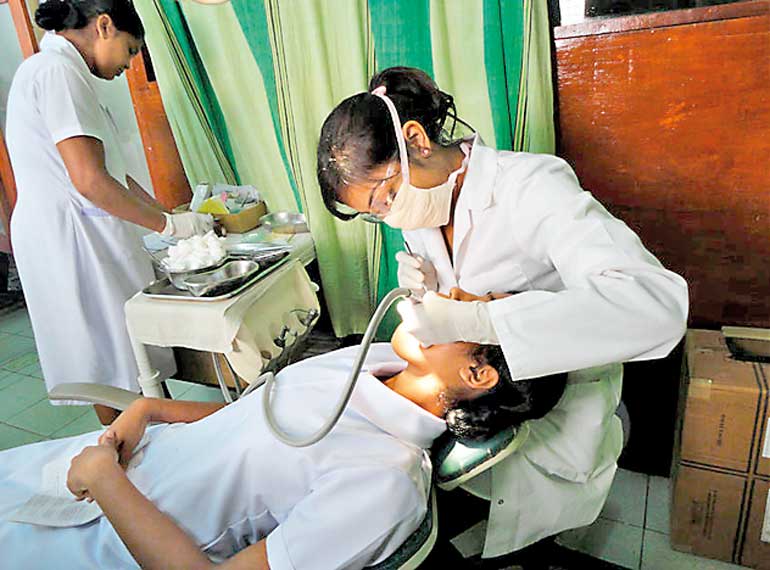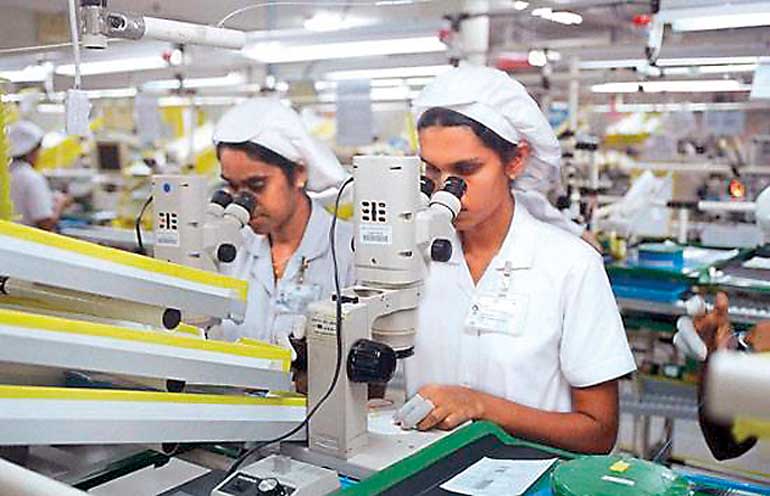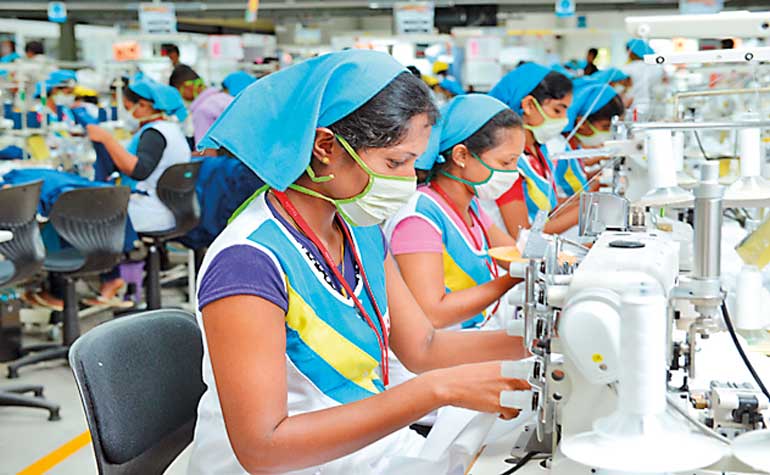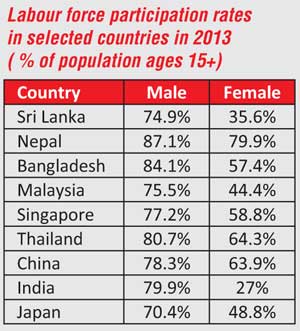Tuesday Feb 17, 2026
Tuesday Feb 17, 2026
Thursday, 26 May 2016 00:00 - - {{hitsCtrl.values.hits}}


 Women’s contribution to the Sri Lankan economy is remarkable as major foreign exchange earning sectors comprise a larger proportion of women. Yet, Sri Lanka’s female labour force participation is behind many Asian nations.
Women’s contribution to the Sri Lankan economy is remarkable as major foreign exchange earning sectors comprise a larger proportion of women. Yet, Sri Lanka’s female labour force participation is behind many Asian nations.
Presently, Sri Lanka’s female labour force participation rate is around 35% compared with male participation rate of 75%. However, female labour force participation in selected Asian countries particularly Singapore, Japan, Thailand, China and Bangladesh remain in the range of around 50 to 65%.
Sri Lankan women possess 92.6% of literacy rate which is above its regional peers and the share of female students’ enrolment in university undergraduate level is around 60%. Surprisingly, this remarkable educational achievement of Sri Lankan women is not portrayed in the economic participation highlighting a significant gap in transforming available human resource potential productively to generate economic outcome measured in GDP and the national wealth.
 Socio economic transformations and labour force
Socio economic transformations and labour force
Indeed, Sri Lanka’s demographic transition with the rapidly ageing population creates a critical labour crunch in several sectors whereas promising growth potential of the service sector of the economy requires more female skilled labour input. In this given context, increased women’s economic participation is necessarily important to maintain the desired economic growth momentum.
Further, United Nations’ Sustainable Development Goals also emphasise to ensure that all human being can fulfil their potential in dignity and equality paying attention to achieve gender equality and empower all women and girls.
So what can be done?
Of course, the majority of women are taking up household responsibilities including caring for children and elderly which take priority over working for wages outside the home. In line with this, women being married and having young children reduces women’s participation in the labour force significantly in most countries.
More women’s economic participation could be induced with the introduction of women positive cooperate environment, supportive human resource policies and working arrangements in view of relieving the pressure of care-giving responsibilities and balancing their career with family responsibilities.
Accordingly, flexible working hours, part-time jobs, working from home and establishing more daycare centres both in urban and rural settings to provide quality of care at affordable rates could be considered.
 Accelerated economicgrowth – A must!
Accelerated economicgrowth – A must!
Sri Lanka’s present economic expansion activities are not adequate to absorb the larger proportion of current economically inactive women into the labour force.
Accelerating the economic growth is a must and fast export oriented industrialisation is instrumental with the support of international corporations and Foreign Direct Investment to create substantial employment opportunities for women whilst taking labour intensive industries and commercial business ventures to rural villages would enable rural women to find employment opportunities in their own villages.
The garment industry in Bangladesh and Sri Lanka is ideal example which enhanced economic participation of women and thereby uplifting the rural economy.
Moreover, economic reform agenda should focus on fostering more women entrepreneurs, with the necessary support on capital, markets, technology and training to grow their business successfully.
Additionally, women should be encouraged to follow more job-oriented educational streams and acquire market-oriented skills such as fluency in languages and ICT and soft skills, mainly communication, leadership, and problem solving, which will boost job prospects and convert them as successful professionals.
Change in attitude
Socio cultural factors such as traditional attitudes, social norm and practices also restrict women from participating in the labour force. Many still perceive women to be fully caregivers at home, limiting women’s ability to make an economic contribution. Hence, promoting greater awareness is critical to change the mindset of women who still have doubts about taking up jobs and the general attitude to stimulate women to join a work place to build fulfilling careers outside homes.
Political empowerment
Interestingly, Government endeavours enabling 25% female representation in local government bodies is an encouraging move which could improve political, social and economic leadership roles played by women significantly.
Conclusion
Overall, the economic participation of women is essential to sustain the economic growth momentum in a changing socio-economic landscape. A strong collective effort of various stakeholders, particularly government, companies, investors and citizens, is critical to create a supportive environment which enhances women’s labour force participation, which will not only empower women but also improve family living standards, uplift the rural economy and lead to overall economic prosperity of the nation.
(The writer is an Assistant General Manager of a leading organisation. He is a graduate of the Chartered Institute of Marketing of United Kingdom and Wayamba University of Sri Lanka. You can share your feedback on [email protected].)